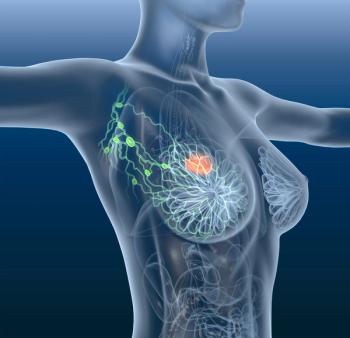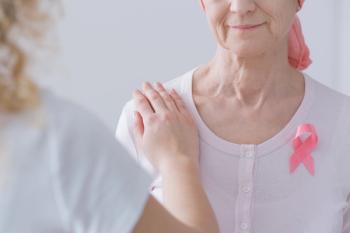
Certain over-the-counter supplements can make chemotherapy less effective or even be the reason a breast cancer surgery is delayed.

Certain over-the-counter supplements can make chemotherapy less effective or even be the reason a breast cancer surgery is delayed.

By understanding family history, an individual can better reveal their genetic breast cancer risk and whether or not they are a candidate for genetic testing.

A breast cancer survivor describes the mixed bag of emotions she has about getting a routine mammogram the day before Thanksgiving, and how she remains joyous and thankful yet cautious and fearful.

Being informed and educated may help patients with breast cancer make a treatment decision and feel less afraid.

A caregiver and mother of a breast cancer survivor explains the common misunderstanding people have when asking how her daughter��’s health post-treatment.

A woman living with metastatic breast cancer explains why TV commercials depicting carefree, happy people do not reflect the reality of her experience. “My life and the lives of those affected by metastatic breast cancer is anything but normal. Too many of us are dying every day,” she writes.

The panel provides closing thoughts on patient advocacy and advocacy activities.

Julie Larson, LCSW, provides insight into reasons for joining clinical trials, finding trials from peers, and trials for purposes other than cancer treatment.

On this episode of the “Cancer Horizons” podcast, actress and comedian Jessica St. Clair and writer Dan O’Brien share their cancer stories and how they channeled their emotions through creativity.

An expert explains what treatment strategies are available for patients with metastatic breast cancer, how far research has come and why patients shouldn’t lose hope.

The panel discusses resources available for locating relevant clinical trials for patients with metastatic breast cancer.

Shirley Mertz, MA, JD, provides an overview of clinical trials and how they are conducted.

A breast surgeon discusses what patients and their caregivers should know before breast cancer surgery.

Navigating discussions around treatments for early-stage breast cancer may be difficult, but feeling comfortable with one’s cancer team and knowing about all the available options may help.

View the full CURE Educated Patient Breast Cancer Summit Outside of Therapy Session on demand.

View the full CURE Educated Patient Breast Cancer Summit Novel Therapies Session on demand.

View the full CURE Educated Patient Breast Cancer Summit Multi-Disciplinary Approaches to Early-Stage Breast Cancer Session on demand.

A woman who has been living with metastatic breast cancer for seven years reflects on the strangeness of her body aging. “It’s the one thing I never imagined would happen after being diagnosed with and while living with a terminal illness – I’m actually getting old,” she writes.

Sheila McGlown provides insight into the underrepresentation of women of color in clinical trials for breast cancer and discusses reasons for these disparities.

The panel elaborates on the racial disparities in the care of breast cancer and the need for systemic change to address these disparities.

A woman who had an aesthetic flat closure after her mastectomy due to breast cancer explains what the new “Simpsons” character, Dr. Wendy Sage means to her.

The FDA’s recommendations are aimed at helping individuals and patients with breast cancer make better informed decisions about the decision to receive breast implants, according to experts.

Seven years into a diagnosis of stage 4 breast cancer, one woman has also nurtured hope.

Sheila McGlown identifies the racial disparities that exist in the treatment of breast cancer, particularly those faced by women of color, and discusses reasons why these disparities may exist.

The panel discusses strategies for locating appropriate support groups for patients with metastatic breast cancer.